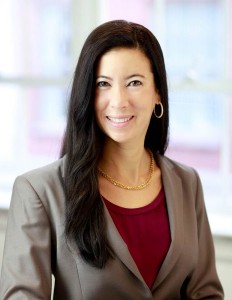Marshall study finds stress reliever
A study led by Sarah Townsend, assistant professor of management and organization at the Marshall School of Business, discovered a new mechanism for coping with stress.

Stress-free · Marshall assistant professor Sara Townsend hopes her study will eventually be beneficial to solving stress in the workplace. – Photo courtesy of Sarah Townsend
The study asserts that those in a stressful situation will benefit from discussing their feelings with those who are in a similar emotional state.
Townsend’s study involved analyzing 52 female undergraduates who were paired up into teams of two for a public speaking exercise. The students were then told to prepare for and deliver a speech that was taped on video with their partner.
Before their speeches, the participants were encouraged to discuss their feelings on the upcoming task. At this time, as well as during and after the recorded speeches, researchers measured each student’s level of cortisol, also known as the “stress hormone,” which is released by the adrenal glands during the body’s fight-or-flight reaction to stress.
USC News reported that, according to the study, the results showed “that sharing a threatening situation with a person who is in a similar emotional state, in terms of her overall emotional profile, buffers individuals from experiencing the heightened levels of stress that typically accompany threat.”
Having people in similar situations is key to the intended results.
‘When you’re facing a threatening situation, interacting with someone who is feeling similarly to you decreases the stress you feel,” USC News reported.
Marshall professor Trudi Ferguson, a lecturer in management and organization, discussed different coping mechanisms for stress in the workforce.
“My personal experience is that stress can be reduced by grounding to validate people’s feelings, basically taking a step back and putting the project or presentation into context as to how big of a problem it actually is and will it matter a month from now,” Ferguson said.
In addition to this study, Townsend is also spearheading a new Culture, Diversity and Psychophysiology Lab at Marshall.
“My intention in the CDP lab is to get a group of graduate students and graduate research assistants to develop and run studies of high-impact research,” Townsend said. “As the name suggests I am interested in cultural differences and how people’s backgrounds shape their behavior, perceptions of the world, expectations and values, which in the end can lead to important benefits for future business leaders.”
In an interview with USC News, Townsend went on to mention the future possibilities of her study in creating a better workplace.
“We’ve found that emotional similarity is important,” she said. “So now the question is: How do we get people to be more similar? What can you do to generate this emotional similarity with a co-worker? Or, as a manager, how can you encourage emotional similarity among your team?”
This post has been updated.

